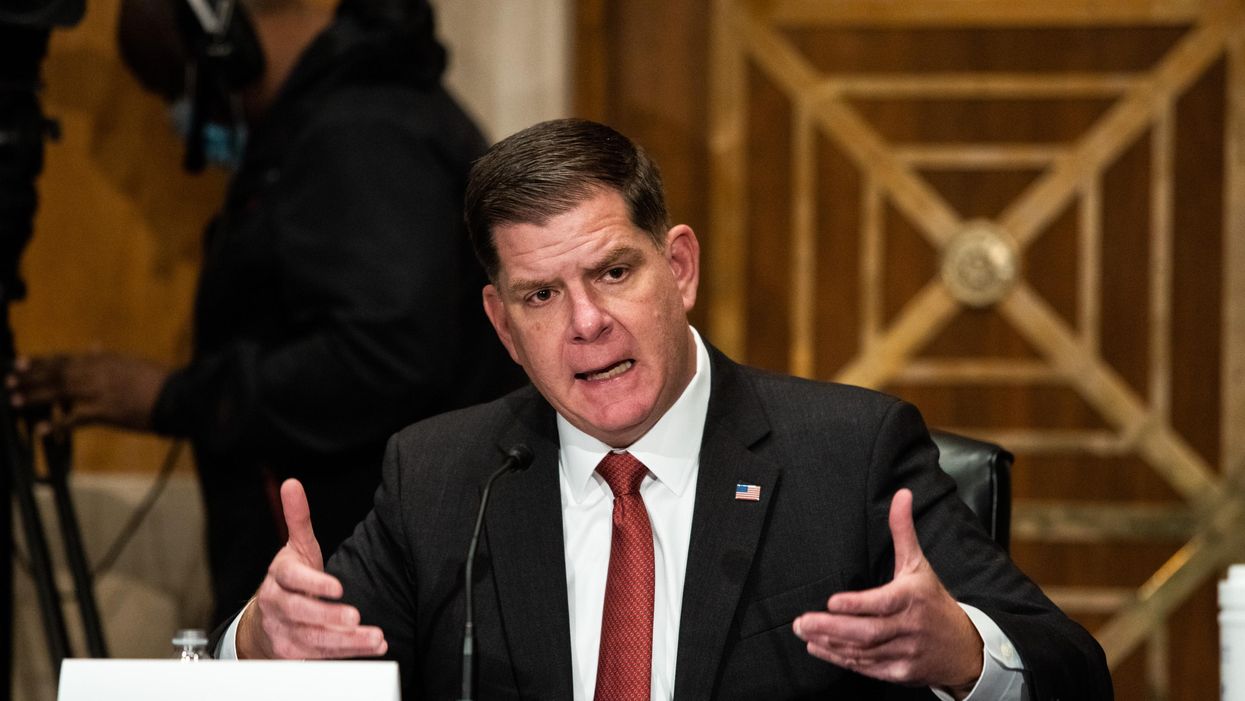Over the past six decades, the number of federal government roles requiring Senate approval has nearly doubled and the process to confirm them has become increasingly arduous and politicized, a recent report found.
This persistent dysfunction within the confirmation process has led to more vacancies in the federal government, reducing the president's capacity to govern and the Senate's power to hold officials accountable, according to the Partnership for Public Service's Center for Presidential Transition.
The nonpartisan nonprofit's report, released Monday, analyzed how the Senate confirmation process over the last several presidential administrations has created serious barriers to the effectiveness of the federal government. The report also proposes several ways to streamline the process moving forward.
The president selects about 4,000 people for various roles within the executive branch and independent agencies, and more than 1,200 of those appointees require Senate confirmation. These roles can range from high profile positions that help implement the president's agenda to part-time ceremonial roles.
Since 1960, the number of Senate-confirmed positions has grown from 779 to 1,237 in 2016 — a 59 percent increase.
Some of these roles were created to help the government address new challenges. Examples of recently established agencies include the Department of Homeland Security, the Privacy and Civil Liberties Oversight Board, and the Consumer Financial Protection Bureau.
But once created, Senate-confirmed positions are hard to reform or eliminate, the report notes. In 2011, Congress passed legislation that converted 163 positions to presidential appointments. This did little to halt the growth of Senate-confirmed roles, though. From 2012 to 2016, more than two dozen positions requiring confirmation were added.
Additionally, it takes more time than ever before to confirm all these positions. The average Senate confirmation process took 117 days during the Trump administration and 112 days during the Obama administration — twice as long as it did during the Reagan administration (56 days).
Following this trend, Joe Biden had the fewest number of cabinet nominees confirmed on his inauguration day in recent history.
The Senate's confirmation of presidential nominees has also become an increasingly politicized process as the minority party uses parliamentary tactics to gum up the works. One increasingly common tool is the filibuster, which is used to slow, if not block nominees. That in turn has led to a rise in filibuster-ending cloture votes, the procedure used to end debate on a motion and proceed to a final vote.
And these lengthy confirmation processes also mean positions in the federal government remain vacant for longer periods of time.
To temporarily fill vacancies for Senate-confirmation roles, presidents have often employed acting officials. "However, what should be a stop-gap measure has become a more semi-permanent solution as the executive branch has increasingly relied on acting officials, often in response to the Senate's slow and intricate confirmation process," the report states.
The Center for Presidential Transition identified seven potential solutions to streamline the confirmation process:
- Convert some Senate-confirmed positions to non-confirmed presidential appointments.
- Assign more Senate-confirmed positions to fixed-length terms to reduce the turnover in key roles.
- Expand the norm of holding over critical officials until successors are confirmed in the short term.
- Convert a portion of political appointments to nonpolitical career roles.
- Convert select Senate-confirmed political appointments on commissions and boards to non-confirmed roles or to agency-controlled appointments.
- Eliminate redundant and consistently vacant appointments.
- Enhance the Senate's "privileged" nomination process to allow certain nominees to bypass committee procedures.
The Framers intended the nomination-and-confirmation process to allow presidents to appoint the best candidates to their administrations, while preventing them from installing unsuitable or corrupt individuals. This objective still has merit and should be maintained, the report says.
"However, the current number of Senate-confirmed positions has created a logjam, hindering the ability of administrations to fill critical roles and undermining the effectiveness of the American government," the report concludes. "It is only through cooperation across the executive and legislative branches that the current appointment process can be reformed from the unsustainable status quo."




















